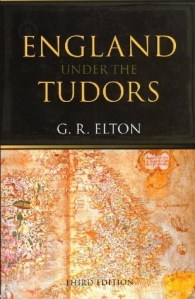Reading this book certainly enlightened me, if only on one point. At last I understand why so many people who love the Tudors, and are apparently historically well-read, hate Mary Queen of Scots. This book is universally recommended on Tudor mailing lists and history course book lists, and could single handedly be responsible for that depth of anti-Marian feeling.
I hereby feel bound to admit that I absolutely hate the man (I’m assuming it is a man) and his smug little book. Does he have a good word to say about anyone except himself? If he approves of a person’s character, you can bet he disapproves of his actions, and vice-versa. And I don’t think this author has even heard of, let alone understood, the concept of ‘hindsight’.
He demolishes Mary QoS, for no better reason than his own apparent disapproval of her, on the basis of what looks like limited research. He is so totally inaccurate about Bothwell and Mary that I wonder how accurate he is on other topics, and so I could not trust the redeeming features of the book – otherwise I would have felt I learned some about the economy of the time, for instance. He doesn’t cite his primary sources, and I would want to check these after reading ANY historian, especially one so noxious as this. The Henderson 1905 bio is the only work he mentions in his bibliography re Mary QoS, aside from a sarky put-down of Antonia Fraser. I wonder if he read further than the Book of Articles (second hand in Henderson, most likely), since his line on Mary seems completely in keeping with that nice little piece of Moray propaganda. I know a book of this type necessarily has to cover topics briefly, but I expect them to show evidence that the author has a large background knowledge he is writing from. Elton really doesn’t seem to have that knowledge where Scotland is concerned (I cannot comment where England is concerned). Which would be fine if he acknowledged that he was writing *from a very English point of view* or cited works which made this plain, but he doesn’t, he acts like he’s writing under divine guidance – that’s if he’d let such an inferior being as God dictate to him.
For some reason he expects his readers to take what he has to say as gospel purely because he has said it, and doesn’t back up his statements sufficiently, or give references which can be checked even for his most outrageous comments. For instance, he makes the sweeping statement that it doesn’t matter whether the casket letters were forgeries or not because it has no bearing on what happened. But the reason the casket letters are important is because if they are forgeries then they show that there was a campaign to falsify evidence against Mary – if he had realised this, he may not have fallen so completely for the propaganda he read and mistook for truth.
He’s also not averse to just plain nastiness and convenient twisting. For instance, he comments on how Darnley developed a true ‘Stuart’ character, conveniently forgetting that he was of Tudor descent too.
His professional jealousy appears to know no bounds – he is particularly scathing about Antonia Fraser (perhaps because she references so much better than he does) and especially David Starkey, who has the temerity to actually disagree with him.
He shares his misogyny with John Knox, and the best he can find to say even about Elizabeth I is that she acted like a man! It is therefore obvious that since I am missing a Y chromosome, I am desperately over-emotional and incompetent to judge such a profound work.

